Sexual assault is a crime. Whether you’re leaving a campus building late at night, working late in the office, or at a party, you have the right to say “no” to anyone who shows a sexual interest in you. Even if you are intoxicated or unable to give consent, being forced to have sex against your will is a sexual assault—rape.
Victim blaming is a common occurrence in these situations, suggesting that the victim shouldn’t have been where they were, shouldn’t have dressed as they did, or shouldn’t have done what they did. No matter if your assailant or anyone else tries to put the blame on you, you are not responsible for another human being’s actions. When you say “No”, your wishes should be respected. And, if you are aren’t capable of saying no because you are too drunk or even unconscious, that is NOT consent.
However, the reality of the situation is that only you can prepare to deal with an attempted assault. They are more common than you might think, but you can plan to protect yourself or set up a plan with friends when you go out. Being prepared before you do anything can help lower the chances of being assaulted. Even if you’re just going home for the weekend or leaving the library after a late-night study session, the unfortunate truth is that you need to have a good plan ready, just in case someone does try to assault you.
Resources for Before and After College
What is Sexual Assault?
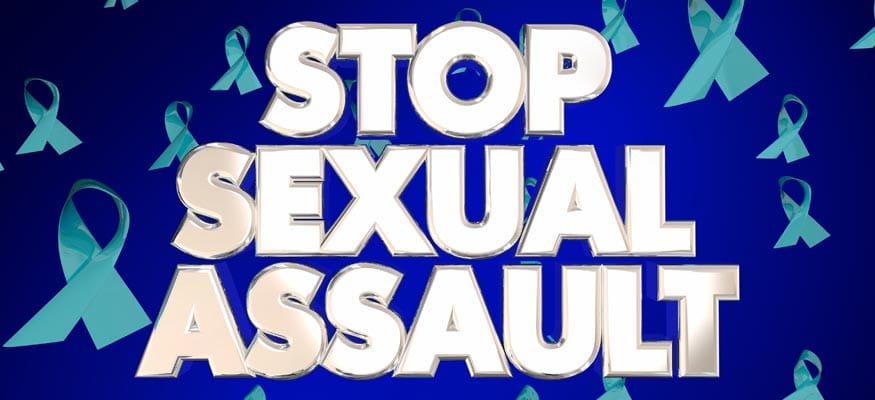
The term sexual assault covers many different acts. All of them force someone else’s will over your own, no matter what you say. If, for instance, you go out on a date with someone from one of your classes or receive aid from them in some way and then they imply that they expect sex in return, any attempt they make to force you to provide them with a sex act is sexual assault.
If someone forces an object into your anus or vagina, this is “forcible object penetration.” Even though no part of their body entered yours, it is still sexual assault. If someone simply touches you inappropriately, either over or under your clothing against your will, again, this is sexual assault. Being sexually harassed, which can take many forms above and beyond touching or forcing their attentions on you physically, is also a sexual crime.
The Dangers
Sexual assault can also be committed by those who are not strangers. You may be assaulted by someone you know or even trusted. For instance, you may have gone out on a date with the person previously without anything bad happening. Or you may be assaulted at a party by a person or persons you have spent time with before. It’s important that you be aware of the risks, no matter who you’re spending time with. Especially when alcohol is involved, you may find that people who you thought you knew are willing to act very differently when they, you, or both of you are intoxicated.
A former partner may be taking your breakup hard, refusing to believe that your relationship has ended. If they or someone you don’t know begins stalking you, tracking your every move, and general making a nuisance of themselves, this can be considered to be related to sexual assault. It’s certainly a form of abuse that you should not stand for as this type of behavior can lead to terrible outcomes.
Currently, college campuses report a 13% rate of non-consensual sexual contact. University police officers at campuses across the country grapple with lack of reporting, which may be caused by school policies and prior relationships between perpetrators and their victims. Most sexual assaults on campuses are found to be connected to alcohol use. The victim or the perpetrator may have been drinking. Alcohol clouds good judgment. The instinct for victims to protect themselves may be lowered and the inhibitions of someone you thought you knew may seem to disappear altogether.
9 Out of Every 10
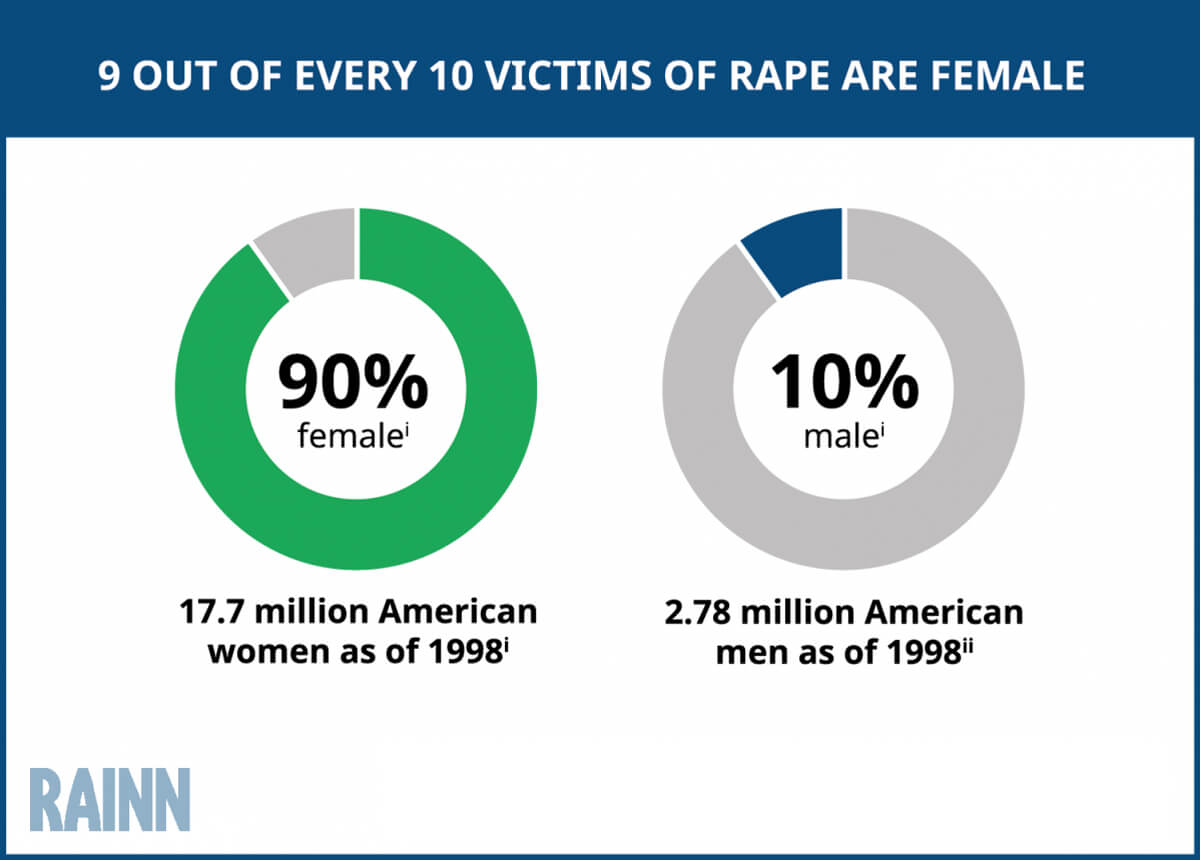
Sexual Assault Statistics
In a study, the Association of American Universities (AAU) released a report discussing sexual assault and misconduct on campuses across the US. Almost 200,000 students enrolled in 33 universities and colleges took part in this survey. Among the findings, non-consensual contact, either because of an inability to give consent or through physical force, stood at 13%. The rates for women, non-binary, transgender, and genderqueer individuals were much higher than they were for men.
Non-consensual sexual contact rates increased by 3.0 percentage points between 2015 and 2019 for undergraduate women, 2.4% for graduate and professional women, and 1.4% for undergraduate men. After entering college, 4.2% of college students report being stalked. And young people don’t have to be in college to be at risk—they are always at a high risk for being sexually assaulted. College students are at higher risk of being sexually assaulted in the earlier months of their fall and spring semesters in school.
The US Department of Justice says that 90% of college sexual assaults are carried out by someone the victim knows. At one university, 63.3% of the men who admitted to rape also said they had raped more than once. Perpetrators employ various weapons in pursuing their victims. Six percent used a gun, 4% used a knife, and 1% used another weapon. However, alcohol is still the weapon of choice for nearly all assaults carried out on a college campus.
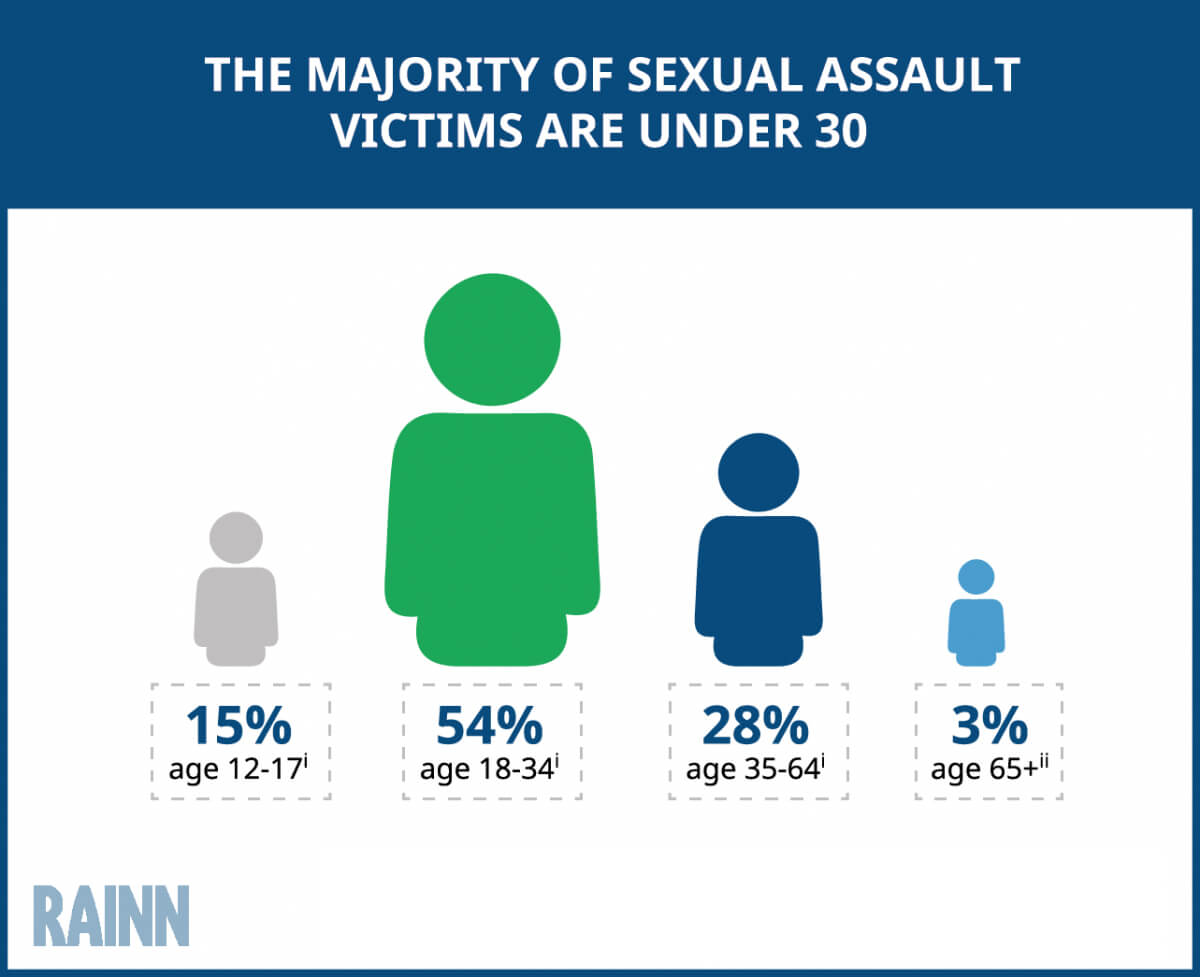
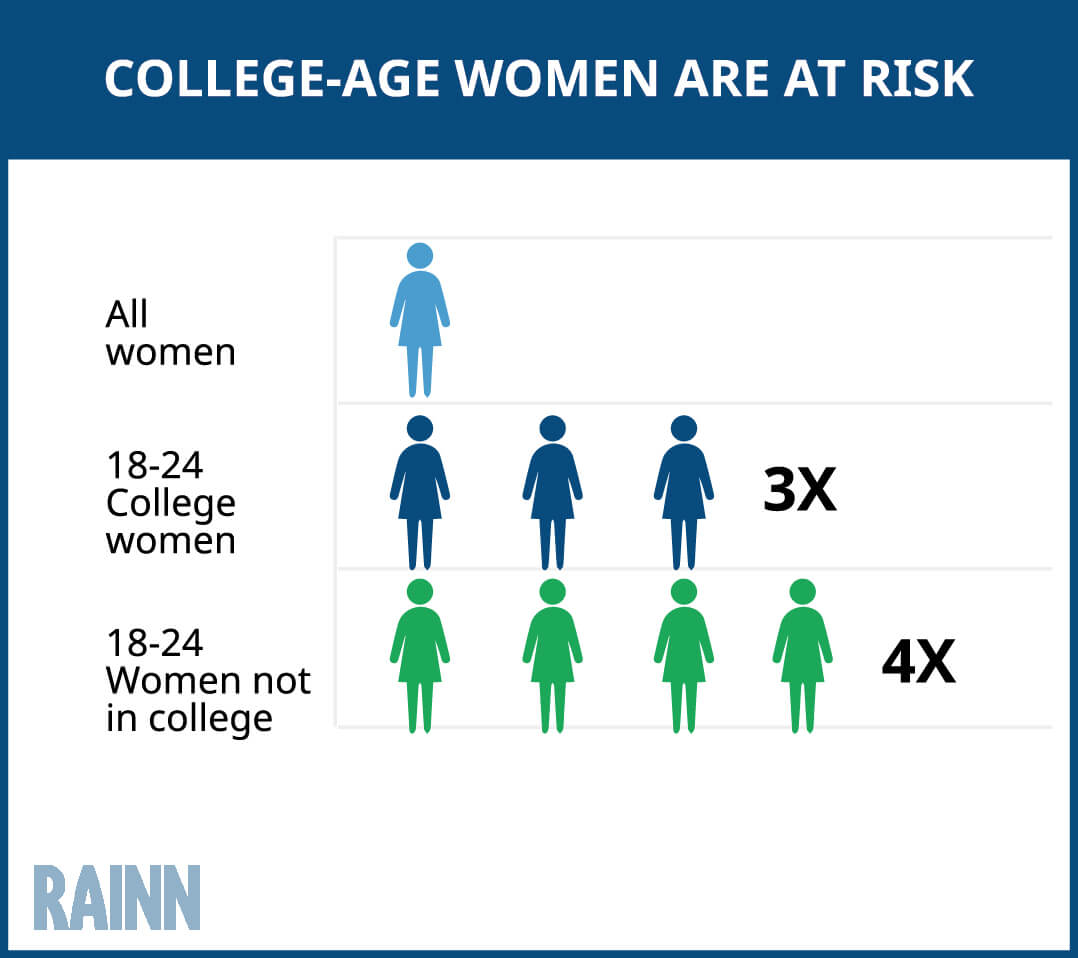
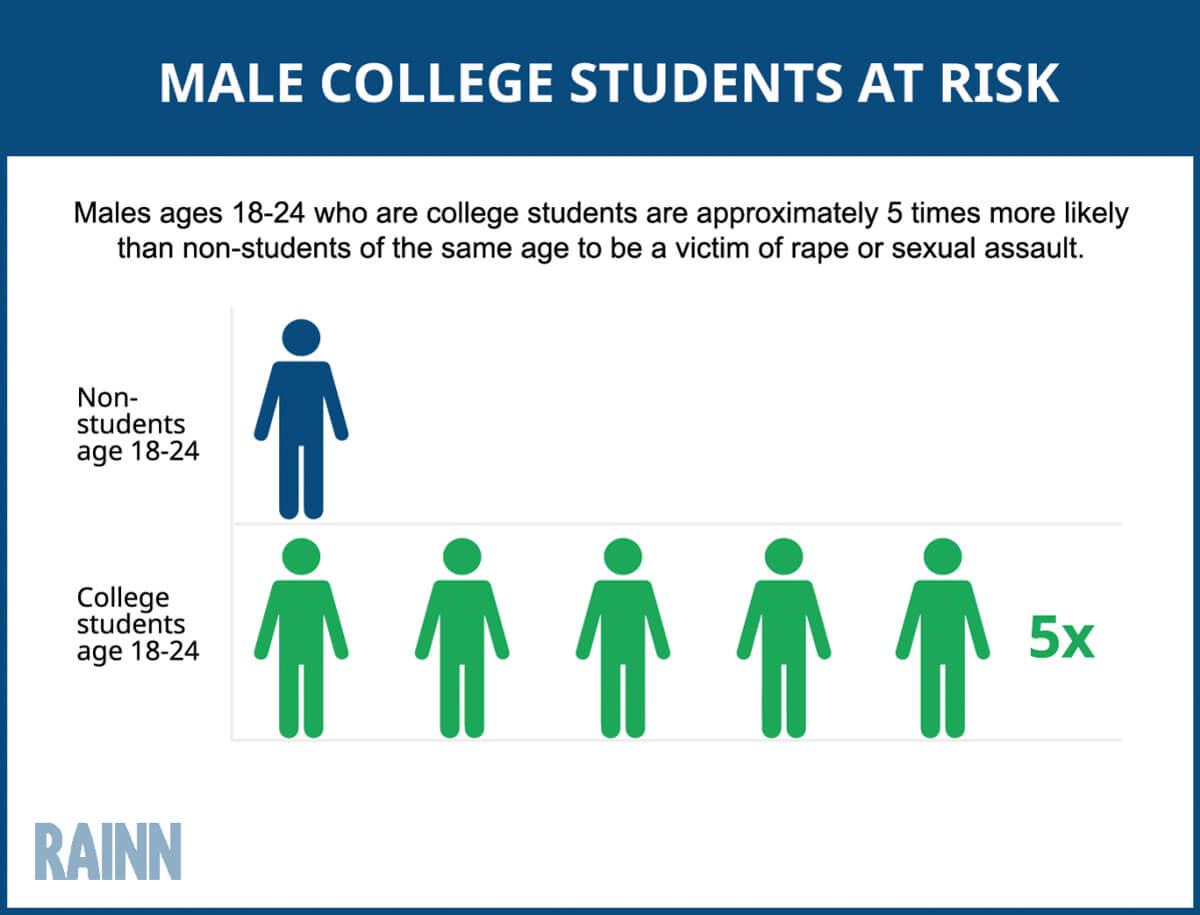
Avoiding Sexual Assault
In General
Some preventive actions are much easier to carry out than others. For instance, when you know you’re going to a party, make a plan with the friends who are going with you. If a guy you just met at that party offers to take you home, especially if you’ve been drinking heavily, decline the offer and go back home with your friends. This is another instance where having a designated non-drinker can come in handy. They can help look out for everyone else while you’re out on the town, even if you don’t need someone to drive you home.
If you’re going to be leaving the library late, accept the college campus escort’s help to get to your car. Don’t walk alone in the dark back to your dorm or apartment. If you have a choice of walking down a lighted street or a dark alley, always choose the street with lighting. Call a friend or your roommate to let them know when you’re coming home. There are various ways you can remain safe, even if you don’t have any of these options. Apps have been developed to allow your friends to track you as you walk through dangerous neighborhoods, to automatically call 911 and sound an alarm if you feel you are being threatened, and more. Not to mention the more analog ways to protect yourself, such as pepper spray or a rape whistle. No matter how you choose to protect yourself, there are options available to you and you should avail yourself of them before they’re needed.
Ways to Avoid Assault
- At a party, keep your drink in your hand. Never put it down.
- If you do put your drink down and you can’t see it, get a new drink. There are also options to check your drink for rape drugs with stir sticks and even nail polish.
- Don’t take a drink from anyone at the party. Instead, ask for the bartender to pour a new one for you.
- Don’t drink from open containers or punch bowls. Don’t drink anything that tastes off—spit it out.
- Stick closely to your friends at the party. If you do separate from them, agree beforehand on a code word that allows you to reconnect with them.
- When you go out on a date, know what you’ll allow and what you won’t allow. Know where you’re going beforehand and have some form of protection with you if possible.
- If you begin to get creepy vibes, leave or ask to go somewhere you will feel safer. If they aren’t willing to make you feel safe, it’s a good idea to get out of there quickly.
- Keep your cell phone charged and with you.
When Out with Friends
Normally, when you’re anticipating going out, you’re thinking of that cute outfit or hairstyle you want to wear. You might wonder if that cute guy from your Spanish class will be there. Your main focus is on having fun, letting loose, having a few drinks, and maybe. . . meeting someone.
That’s all well and good, but you should keep a few other things in mind as well. You may have seen several of your friends getting buzzed or outright drunk. You need to know what you’re going to do to protect yourself if someone gets out of control. Know your stopping point and how you’ll make some guy stop if no one else is cognizant enough to help you.
Ways to Protect Yourself
- Decide what kind of behavior will be taking things too far for you. This is your stopping point.
- If someone still insists on going too far, don’t be afraid to say “No!” in a loud voice. If they aren’t sober, this may be a better way of getting through to them than rambling or even pushing them away. If you’re around other people, you’re also going to draw attention to yourself, which may be a better deterrent for them than anything else.
- If you’re going out on a first date, either meet the person at your destination or go out on a group date.
- You have the right to tell anyone “No”. it doesn’t matter if you’ve had drinks already or if you’ve been intimate before. Remember this.
- If you are at a bar, stick with your friends if someone who wants to be alone with you is making you uncomfortable. Better yet, go somewhere else. Surely there are other bars around.
- If you have to go to the bathroom, go with a friend. Never be alone.
- Tune yourself in to someone’s behavior. If they aren’t respecting your personal space or seem to get pleasure out of making you uncomfortable, let your friends know.
- If something seems to be happening to someone else, don’t ignore it.
What is Date Rape?
Date rape is a crime that may not require violent physical coercion. While the victim may fear violence or being held against their will, they may be impaired by alcohol, drugs, or even a date rape drug which makes it hard for them to fight back or respond as they would like.
High school and college women are the most common victims of date or acquaintance rape. And 22% of women in college have been coerced into sex during a date. This may happen if the victim’s partner’s attempts at seduction haven’t succeeded or if the victim has become excessively intoxicated and cannot respond as they want. Date rape doesn’t have to take place far away from other people. It can happen in a bedroom while others are in the living room. And, no matter how date rape occurs, it is never ok for someone to perform a sex act without your active, positive consent. Don’t be fooled by their response that you “didn’t say no”, so they thought it was fine. This behavior is likely to continue until you put a stop to it.
Ways to Protect Yourself
- If you’re looking to protect yourself, you might consider taking a self-defense class, either on campus or in your community.
- If you came with a group of friends, leave with them. Don’t leave with someone you just met, whether you feel comfortable with them or not. It’s impossible to know someone after a single interaction, no matter what romance books or movies tell you.
- If you are meeting someone you don’t know, agree that you’ll meet them in an area with people around.
- Don’t let your date talk you into leaving your car at your meeting spot. Keeping it close by is the safer option, as you’ll always have a quick out and not feel you need to rely on them for transportation.
- If you are on a date, pay attention to your drink at all times. Even if you feel you can trust them, it’s better to be safe.
- Let a friend or your roommate know where you’re going to be. Tell them what time you plan to be home. You could even ask them to call you or text halfway through your date.
- If you still become the victim of date rape, report it to the police. And insist that the crime be investigated. No one deserves to be assaulted and don’t let them try to convince you otherwise.
When Walking Alone
Whenever you find it necessary to go anywhere on foot, you need to take precautions to protect yourself. Daytime or night, you may be vulnerable to anyone who wants to attack you. You can try to get a ride from a friend. If that isn’t possible, you could ask someone to walk with you. There really is strength in numbers. When a potential assailant sees you walking with someone else, they are much more likely to decide to look elsewhere for a victim to assault. If you must walk, avoid areas where a potential attacker could hide.
Ways to Protect Yourself
- Stay alert as you are walking. This means staying off your phone and not wearing earbuds, either. These make it harder for you to hear what’s happening around you.
- Walk as close to the curb as you can and stay away from bushes and alleys.
- Walk with confidence, keeping a steady pace. And stay on the sidewalk that faces traffic so it’s more difficult for a car to pull up next to you or troll down the road beside you.
- Avoid dark areas; walk only in areas with ample lighting, preferably in areas with ample people/pedestrians.
- If someone does grab you, use your voice. Scream, yell “help!” or “get away!” Really, anything that you think will bring attention to you. Fake a celebrity sighting, just get any nearby people to look your way.
- If someone is following you, go into a store, making it look like you got to your destination. Or stop at someone’s house and ring their doorbell. Whoever’s inside is likely les dangerous than a stranger who has chosen to follow you the road.
- Always plan your route out so you can quickly turn onto intersections.
- Don’t hitchhike.
In Buildings or Elevators
Some buildings, such as campus libraries, may have more than one floor. On those nights when you have to study late, you want to avoid any locations where a potential assailant can get you alone. One of the areas you might want to be careful of is the elevator. It could be easy for a would-be attacker to see you go into the elevator and follow you in. This means that, for as long as you are going to a lower or higher floor, you are stuck with them and, even a short time may be too long to be stuck with a stranger.
Ways to Protect Yourself
- If you are waiting for the elevator and someone else joins you, pay attention to your feelings. If you begin to feel unsafe, wait for the next elevator.
- When the elevator doors open, look inside to reassure yourself that nobody is hiding inside.
- If you are riding in the elevator and begin to feel uncomfortable, get off on the next floor, no matter if it isn’t the floor you want to go to.
- Stand near the elevator’s controls, if you can. Don’t move away from them.
- Become familiar with the elevator’s emergency buttons.
- If you’re very unsure and the stairs are open, take them instead. You’ll have to make a call if the stairs are enclosed, as this could be as unsafe as the elevator.
Driving
When you get into your car to go somewhere, you need to prevent yourself from becoming a victim. Perpetrators tend to look for someone who is distracted or not paying attention to their surroundings. You want to be constantly aware of your surroundings as you are driving. If you see something or someone that makes you a little suspicious, pay attention to that little voice. It spoke up for a reason. If, for instance, you are parking to get out of your car in a parking garage or entering a store or pub, be watchful.
Ways to Protect Yourself
- Always be aware. Look around you frequently, getting an idea of who and what is around you.
- When you’re going to your car, have your keys ready. Don’t fumble in your purse for them at the last second. Look for anyone just aimlessly hanging out. They may be between you and your car. Go back inside if you feel nervous.
- When you get to your destination, look to see if anyone is timing their pace to get to your car as you get out. If this is happening, start your car and leave.
Getting Help
If you’ve been sexually assaulted, you need to know where to go and what to do. Not only might you have physical wounds; you’ll also likely experience emotional and psychological ones. What works for another survivor’s healing may not work for you. Asking for help from a counselor or sex assault specialist may help you begin to recover.
First, you should get medical attention. You may have injuries that need to be looked at. Also, you need to make sure that your attacker didn’t expose you to any STDs they may have. For this reason, undergoing an exam and a rape kit is a major step toward your recovery. It’s better to know than not.
The rape kit collects blood samples, your DNA and that of your attacker. If your attacker didn’t wear a condom and ejaculated on or in your body, that will also be collected. File a police report so law enforcement can begin investigating your attack and looking for and investigating your attacker.
Some Places Students or Anyone Can Go for Help
If you are, at any tie, assaulted by anyone, you need to know where you can go for help. You also need to be able to tell someone how you feel so you can begin to address your emotional reactions. Find the Sexual Assault Center in your community or another place that specializes in after-care for assault victims. There, skilled counselors will help you to face what happened to you so you can begin to recover from your experience.
A hospital emergency room has the medical equipment and rape test kit you need so you can begin physically recovering—and so the evidence collected can help put your attacker away. If you have been able to escape from your attacker, call 911 right away, especially if you are still in danger. Responding police offers can take you to the hospital or a sexual assault counseling center.
Though it might be difficult, try to preserve any evidence remaining on your body. You can do this by not showering, changing your clothes, or urinating. Keep your panties. If you are having your period, you can preserve your tampon or menstrual pad as evidence. If your attacker left a condom behind, take it with you as further evidence. Don’t forget to call law enforcement. Once they know what has happened to you, they can file a report for you and, if they find your attacker, arrest them.
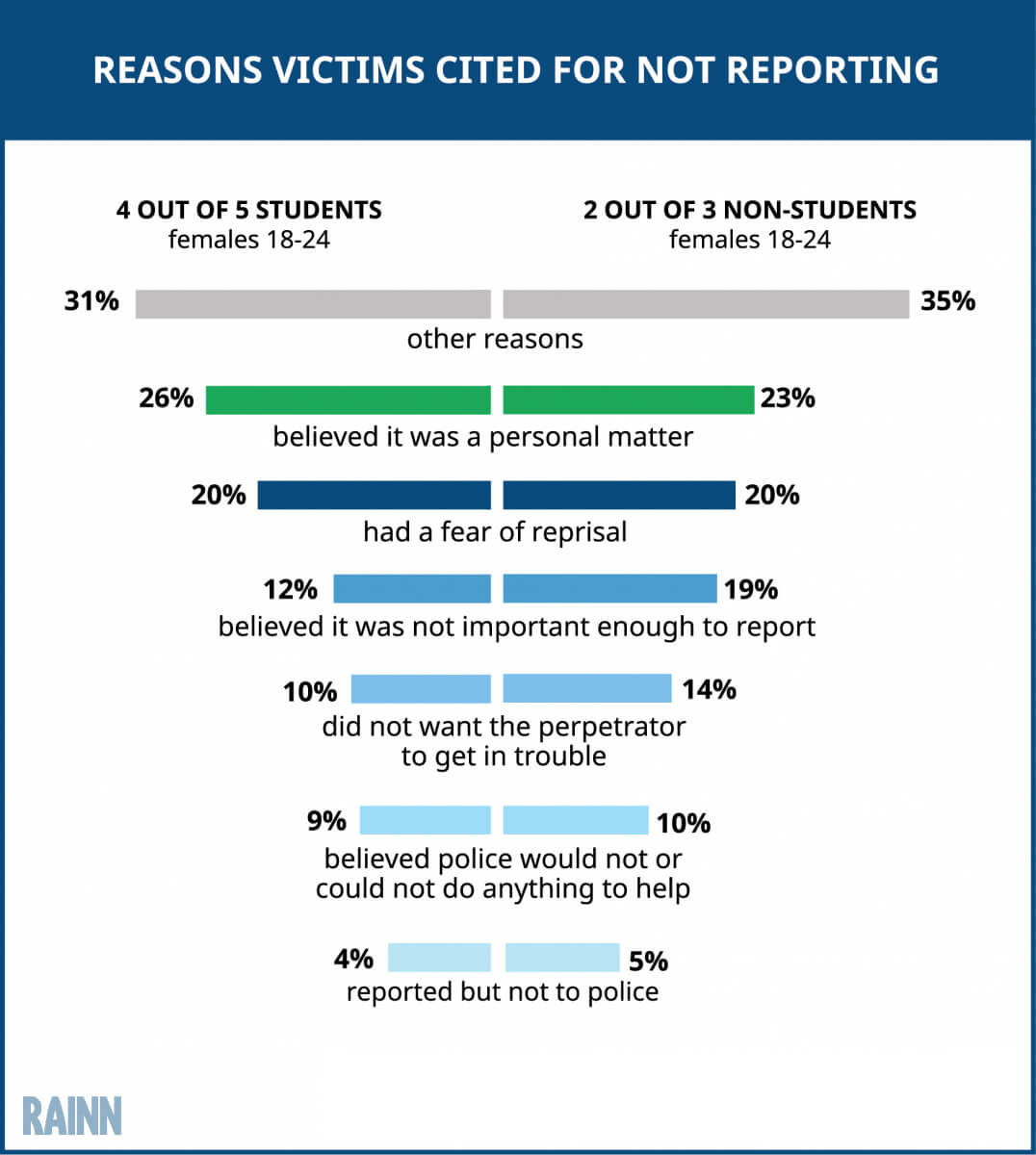
Resources
- Sexual Assault Center
- Local police department
- Hospital emergency room
- Campus mental health center
- Campus women’s health clinic if one is available
